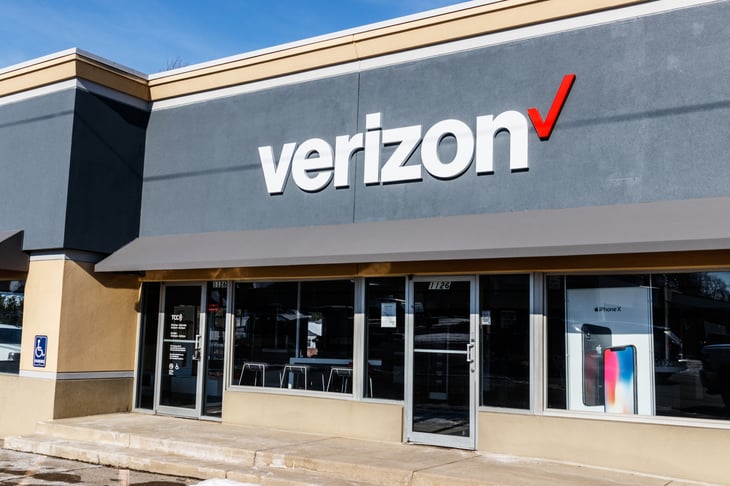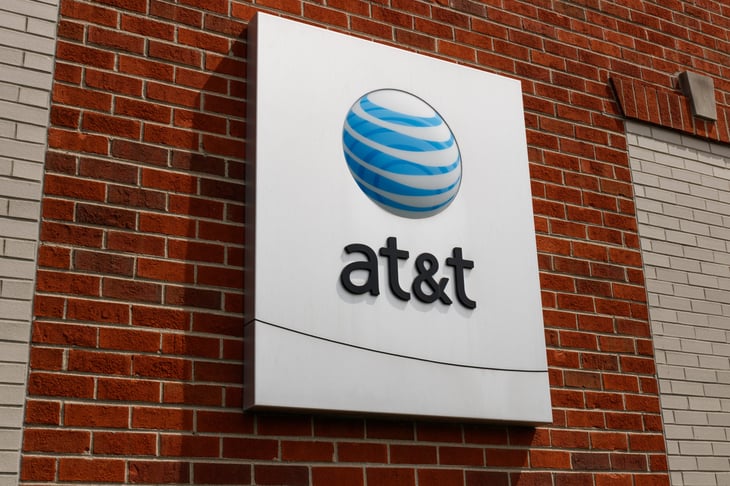
Editor's Note: This story originally appeared on Living on the Cheap.
Cellphone plans run from very inexpensive to hundreds of dollars per month.
Some are prepaid. Some have a contract. Some come from big, reputable companies everyone knows. Some few have heard of.
There are so many options that it can be hard to make the right decision.
While each company advertises that they have the fastest, bigger, most reliable, and most modern network, how do you know what to trust?
Read on for a basic review of the most popular phone plans available and tips on choosing the right one for your family.
Choosing a cellphone plan is not simple

Smartphones are expensive, and kids are getting them younger and younger. To keep up with their friends, kids want the latest and greatest phones, and photo and video-intensive apps like TikTok, Snapchat, and YouTube suck up your data like a tornado.
To choose the best family phone plan, you’ll want to consider several key points:
- Which wireless carrier has the coverage you need?
- Is the cheapest smartphone plan adequate, or do you need more?
- Do you need an unlimited data plan, or can you save money by paying per gigabyte?
Ultimately, you’ll have to decide which cellphone plan is best for you. It’s not a one-size fits all decision. But we’ve provided up-to-date information about many of the best-known carriers and their plans. The good news is that many phone plans are no-contract, so you can switch later if needed.
Verizon, T-Mobile, and AT&T are the three biggest carriers by far. Here’s a look at how those stack up for the best family plans and how they compare.
Verizon

$100 per month for a family of four with a contract; $140 per month for a family of four with a no-contract prepaid plan
Verizon is one of the biggest and oldest telecom companies in the United States, tracing its roots back to Bell Atlantic. It’s one of the world’s largest phone and internet providers and is a household name in the U.S. But just being the biggest doesn’t make it the most affordable or the best.
If you’re willing to sign a contract and you already have a phone, you can get talk, text and unlimited data starting at $25 per line for four lines, plus taxes and fees (which can add a significant amount). You also have to enroll in autopay and agree to paperless billing. Higher tier plans come with perks, discounts, and free subscriptions to several services.
For families looking for a no-contract option, prepaid plans start at $140 per month for a family of four when bring your own phone, use paperless billing and sign up for automatic payments. However, that price is for talking and texting only; it doesn’t include a data plan for activities like sending emails or checking social media.
Prepaid data plans will add at least $10 per month, per line. Taxes and Verizon-imposed fees can add a significant amount, so check on your final monthly payment before signing up.
According to a 2022 network test by PC Mag, Verizon has the second-best network overall in the United States based on various factors, including download speed, upload speed, latency, dropped calls, and failed data connections.
T-Mobile

$105 to $185 per month for a family of four
T-Mobile is the second-biggest cellphone provider in the United States and leaped up the rankings quickly with a merger between Sprint and T-Mobile a few years ago. T-Mobile ranks as the best network in the U.S. according to PC Mag.
Plans range from $105 to $185 monthly for a family of four. For the lowest-priced plan, included data is limited to 50 GB; higher-priced plans include unlimited data.
As an interesting perk, taxes and fees are included in some higher-end plans. Discounted plans are available for 55+ adults, first responders, and military households.
Higher-tier plans include more fastest-tier data, faster mobile hotspot connections, a complimentary subscription to Netflix and Apple TV+, higher mobile streaming quality and in-flight internet access where available.
AT&T

$140 to $200 per month for a family of four
AT&T is another of the old Bell System phone companies and traces its roots back to its founder and the telephone inventor Alexander Graham Bell. According to PC Mag, AT&T ranks third in customer count and network quality. Plans include unlimited data, calls, and text messaging, similar to competitors.
Plans range from $35 to $50 per month per line for the main unlimited plans, plus taxes and fees. A feature of AT&T’s Unlimited Your Way plans is the ability to choose different plans and price points for each line on a family plan, depending on a member’s typical usage.
Moving up toward the higher tiers gets you faster data speed with higher limits, more hotspot data, and higher-quality video streaming.
Deals are available to military and veterans, first responders, nurses, physicians, and teachers. AT&T also owns Cricket Wireless, which offers a different suite of discount mobile phone plans.
Other family plan mobile carriers

While most people are with one of the “big three” above, those are not the only phone plan providers in the U.S. I’m with one of the following carriers myself and enjoy good coverage and great pricing.
UScellular

The fourth largest carrier in the United States is UScellular. This company reaches 23 states, so it may not be available near you.
Plans start at $29.99 per line for basic needs up to $49.99 per line per month for the most extensive unlimited plan.
Some perks of the higher tier plans include additional higher-speed data, greater hotspot access, and certain monthly fees are waived.
Dish Wireless: GenMobile, Boost Mobile, and Republic Wireless

Dish Wireless is the cellphone provider for Dish Network, the same company that does satellite TV.
While you won’t find phone plans listed under Dish Wireless, it’s the company behind better-known providers Republic Wireless, Boost Mobile, and GenMobile.
The carrier has a deal with the FCC to quickly expand coverage to at least 70% of the U.S. population.
Each brand has its own plans and features, but they’re worth comparing if you want discounts or a la carte phone plans.
Google Fi

Google Fi is a phone service from Google that runs on the T-Mobile network.
The Simply Unlimited Plan (which I use myself) costs $20 per line each for four lines. Unlimited Plus includes data in nearly every country and unlimited mobile hotspot data for $40 per line per month for four lines.
Fees are also much, much lower than the traditional carriers who tack on things like “network fees,” “maintenance fees,” and “service fees” to pad their income. Google only charges the basic required taxes on top of the monthly subscription fee.
Mint Mobile

Mint Mobile is a discount phone provider that offers plans for $15 per month.
You can mix and match plans from $15 per month to $30 per month per line. Only the $30 per month plan includes unlimited data.
This provider could be good for adding an aging parent or young child who doesn’t use much data for a lower cost. Family plans here are available for two to five lines.
What family plan is best for you?

The big phone companies are big for a reason. With the strongest networks available, they lure in customers willing to pay higher rates for the best coverage.
However, smaller entrants like Google Fi and Republic Wireless offer exciting deals at a much lower price tag.
Before you pick your next plan, be sure to check their network map to make sure the places you spend the most time are covered, and look at things like data overage charges in case you need a little more.
There is no perfect plan, but you might find the ideal plan for your needs.





Add a Comment
Our Policy: We welcome relevant and respectful comments in order to foster healthy and informative discussions. All other comments may be removed. Comments with links are automatically held for moderation.